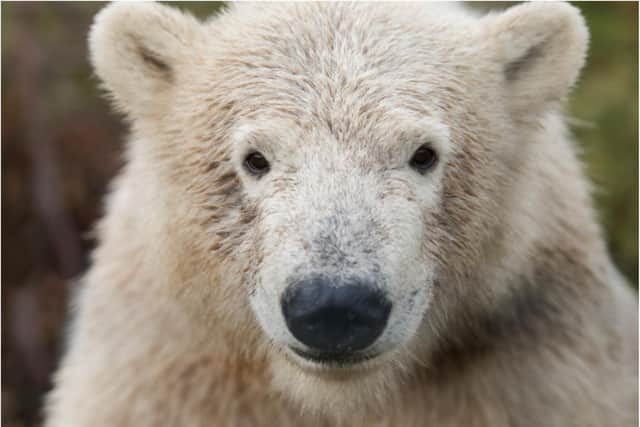First polar bear born in UK in 25 years is moving from Scotland to Doncaster
and live on Freeview channel 276
Hamish, who became the first polar bear cub born in the UK since 1995 when he was born three years ago, will become the park's sixth polar bear when he is welcomed into the park’s existing five-strong family at the Project Polar, a twelve-acre network of lakes and reserves, in October.
The 2 ½ year old will join Victor, Pixel, Nissan, Nobby and Rasputin at the park at the recommendation of the European Endangered Species Programme to support the campaign to save polar bears from the devastating impact of climate change.
Advertisement
Hide AdAdvertisement
Hide Ad“We are looking forward to Hamish’s arrival and are sure he will settle in quickly to life with his new family who, like him, are active, charismatic and visitors’ favourites,” said YWP’s Head of Animals Dr Matt Hartley.


“Our conservation work is vital to securing their future and Hamish will help us understand more about their habits and behavior.”
Young polar bears traditionally leave their mothers between the ages of two and three to explore and build their own lives so the timing of the move away from mum Victoria has been scheduled to fit that natural cycle.
Hamish will be missed at the Highland Wildlife Park near Inverness, whose senior animal keeper Rachel Williams, said: “It has been an incredible two and a half years watching him grow. This is a natural time for Hamish to be moving on and I’m sure Victoria will appreciate some peace and quiet.”
Advertisement
Hide AdAdvertisement
Hide AdShe added: “He has helped to highlight the threats many species face in the wild and the changes we can undertake to really make a difference. Changes in the Arctic climate mean the sea ice that wild polar bears, and other animals, depend on for survival is shrinking and it is predicted this will significantly decrease population numbers over the last 40 years.”
The ten acre Project Polar site has a 7.5m deep lake allowing the bears to dive and play in the cold depths. It is at the forefront of international conservation initiatives to save the largest land carnivore.